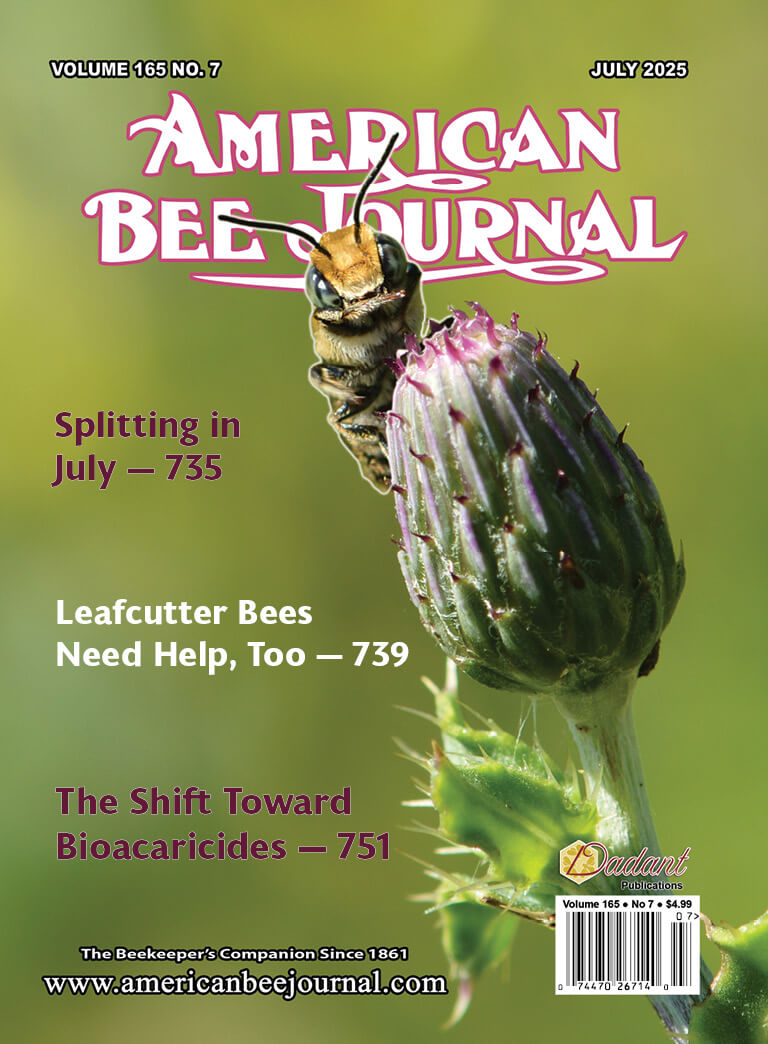New Hive Type
I am a third year beekeeper and am fortunate to be mentored by a small commercial beekeeper and gee whiz he is male. He also heads our beekeeper association. After reading the article in the July 2018 issue regarding diversity, I found it to be very disconnected and disconcerting. The article states we have diversity and yet state that women have to have their own classes. This is not diversity and find it offensive as a female.
I belong to a group on Facebook, “Women in Beekeeping”, because I was invited. I hear all the time that women have been treated rudely by our male counterparts at other web sites. Have women asked of themselves, did I research my problem/experience before communicating? Did I ask a question that was frustrating because as a beekeeper I should know the answer? Have I really spent the time reading, reading and more reading?
And oh my, there is nothing wrong with an agenda, because it is a deterrent to chaos. I am also not willing to throw away decades worth of beekeeping just because it comes from old men. Diversity is supposed to encompass all ages, races and both men/women. You didn’t like the answer you received, shrug and ask someone else.
I participated in two educational events, a county and a state fair. I was truly surprised at how many adults stated they knew bees were in trouble. So many of the children knew all about bees and so many were fascinated with the observation hive. Many stated that they learned about bees in school, so a little puzzled about blaming schools not having a curriculum on beekeeping.
Yes, I was truly shocked when I read an article last year from a bee scientist stating that hobby beekeepers are a detriment to the bees because they don’t control mites. But I am pretty sure that those keepers will quit because of continuous winter hive death. We continuously talk about mite control at our association meetings, and yet still hear members complain that their hives die because they didn’t treat their hives. So they won’t last long in the hobby. There are also very persuasive internet sites that “natural” beekeeping is better for the bees and requires no treatments, and yet I don’t see those sites criticized by scientists.
So I think the question is not about diversity but asking these questions: Where are our industry and bee association leaders? Why aren’t they at the forefront of education? Why are they not collaborating with agriculture to work on swaths of pollinator friendly plantings? If these organizations are collaborating, I have yet to see changes in my state.
Kathleen Grande
Muskego, WI
Author Response
Dear Ms. Grande,
Thank you for sharing your beekeeping experiences and insights. While we interviewed beekeepers from across the country, their local experiences varied, but their national concerns were similar. While many of the beekeepers did not focus on a specific strategy, at any level, it is up to beekeepers to develop that strategy. Those interviewed were often frustrated by the status quo, and yet appreciative of the decades of experience in local and state associations. All beekeepers interviewed saw a need to define and create the future for beekeeping and their bees, but also sought leadership to provide guidance and support.
Beekeepers have been commenting, writing, and meeting to discuss issues of concerns in the beekeeping community (Bee Audacious, Honey Bee Health Coalition, various articles in ABJ and Bee Culture concerning women in beekeeping, and a review of the 1973 report “The Indispensable Honeybee”). It was not our intent, nor those interviewed to dismiss patriarchal leadership, just simply to say that there are plenty of opportunities for women to step up to leadership roles in apiculture. We hope that includes yourself. Beekeepers are as diverse as our bees, and it will take all of us to sustain beekeeping and our honey bees.
Michele Colopy
Program Director
Pollinator Stewardship Council
and Tammy Potter
Kentucky State Apiarist
Oct. Article Pollen vs Bee Bread
Hi Kirsten,
What a great article in the Oct. issue of the ABJ on Beekeeping Basics. You stated that bees consume pollen to activate their hypopharyngeal glands. From articles that I read is that bees do not consume pollen they consume bee bread. As we know bee bread is fermented pollen plus other neat stuff. The excine layer of pollen is difficult for even an adult bee….


